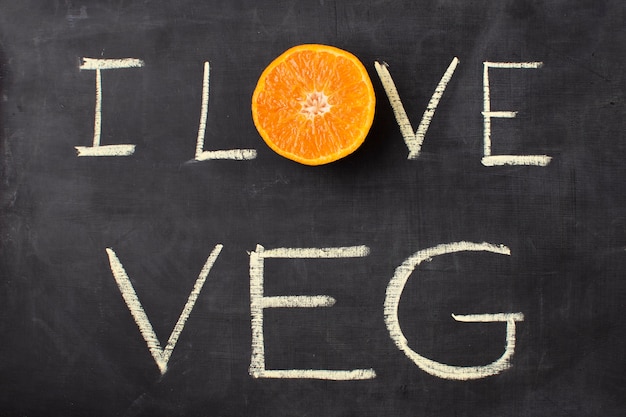
Did you try Veganuary this year? Are you thinking about going vegan or making plant-based eating a permanent lifestyle? Dr. Gemma Newman has some practical tips for you.
There are so many diets out there—low fat, high fat, low carb, high carb, vegan, paleo, keto—that it’s easy to get confused. But is a vegan diet healthy, and how is it different from other diets we hear about?
Veganuary is gaining popularity. In 2018, 170,000 people signed up, and by last year, over 250,000 people took on the challenge. This year, the number is sure to have increased again.
The confusion around nutrition often comes from the media, food companies, and even health professionals. However, everyone agrees on the benefits of eating plenty of vegetables and fruits, choosing whole unprocessed foods, and avoiding processed meats, sugary snacks, sugary drinks, and white flour products.
When people are confused about what’s healthy, they might stick to their old habits and say “everything in moderation.” But that’s not always the best approach. For instance, you wouldn’t tell someone to smoke in moderation. The same logic applies to sugary drinks and processed meats, which are harmful to your health. According to the World Health Organization (WHO), processed meats are known to cause cancer.
Dr. David Katz gathered top nutrition scientists for his ‘True Health Initiative’ to agree on a healthy diet. They concluded that a diet rich in vegetables, fruits, beans, nuts, seeds, whole grains, and water is the best for health. While different diets like paleo and whole food plant-based diets have many similarities, the common goal is health improvement.
Heart disease remains a leading cause of death, and the only diet proven to reverse coronary artery blockages is a whole food plant-based diet. This was shown in the Lifestyle Heart Trial and replicated in the Mount Abu Heart Trial. Given the current evidence, a whole food plant-based diet is recommended for heart health.
Transitioning to a plant-based diet may seem challenging, but it’s doable. For those just starting, there are helpful cookbooks like “So Vegan in 5” by Roxy Pope and Ben Pook, featuring recipes with just five ingredients. Another great book is “BOSH!” by Henry Firth and Ian Theasby, which offers over 80 vegan recipes.
It might help to follow vegan hashtags on Instagram for inspiration. Start by modifying your favorite meals. For example, replace chicken with chickpeas in a curry, use lentils instead of beef in Bolognese, or swap out the meat in a chili for beans. Gradually experiment with new flavors and ingredients to make your plant-based journey enjoyable.
Begin by changing your breakfast to plant-based a few times a week, then do the same with lunch. Gradually increase the number of plant-based meals until it becomes a habit. You might start noticing benefits like improved health in just two to three weeks.
If you switch to a whole food plant-based diet quickly, you might experience some initial bloating as your gut adjusts. But don’t worry—it’s temporary.
Both the American Dietetic Association and the British Dietetic Association agree that well-planned plant-based diets are healthy for all age groups and can help prevent diseases like heart disease and cancer. They are also linked to lower risks of chronic respiratory disorders, allergies, and childhood infections.
Currently, we live in a nutrient-depleted world due to factors like soil degradation and excessive pesticide use. The Western diet often lacks essential nutrients like magnesium, folate, and fiber, and is linked to obesity and chronic diseases. A whole food plant-based diet, especially the ‘nutritarian approach’ by Dr. Joel Fuhrman, is nutrient-dense and beneficial.
However, some supplements are necessary if you adopt a fully plant-based diet, as certain nutrients are harder to get without animal products. You will need vitamin B12 supplements since it’s essential for preventing deficiencies and reducing the risk of heart disease. Adults need about 1.5mcg daily, but up to 2000mcg weekly might be better for optimal health. You can get B12 from fortified foods or supplements.
Many people, even those who eat meat, may be B12 deficient, especially as they age or if they have certain medical conditions. Therefore, supplementing B12 is crucial.
Vitamin D is another important supplement since many people are deficient. Your body makes vitamin D through sun exposure, so if your shadow is long, you might not be getting enough. Aim for at least 1000iu a day, or 2000iu if you tend to run low.
EPA/DHA supplements, made from algae, are the purest form of omega-3 fatty acids and can support heart health without the need for fish. Ground flaxseeds are also excellent for heart health and can be added to meals easily.
Dr. Gemma Newman has over 15 years of medical experience and is a Senior Partner at a family medical practice. She has studied various specialities and provides valuable insights into the benefits of a plant-based diet for overall health.
Ready to make the change? Dive into delicious vegan recipes, find inspiration online, and gradually incorporate more plant-based meals into your routine for a healthier lifestyle.




